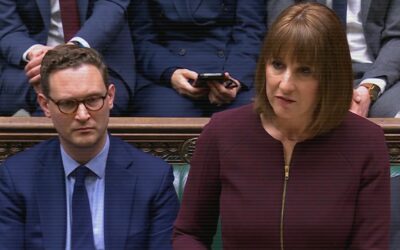In an order dated 8 July 2021 The Supreme Court has granted permission to HMRC to appeal a decision of the Court of Appeal preventing the tax authority from making allegations of fraud against GE in relation to an ongoing tax dispute.
A previous decision from the Court of Appeal found that the allegations made by HMRC were made too late to be considered by the court.
TaxWatch made submissions in support of HMRC’s application for permission to appeal, arguing that there is no time limit on making allegations of fraud in relation to agreements reached between HMRC and companies like GE in relation to taxes.
After considering HMRC’s application to appeal and TaxWatch’s submissions, the Supreme Court has agreed to hear the case in a full hearing.
TaxWatch will now make a formal application to intervene in the case to make submissions in the public interest in the hearing.
Total value of taxes, penalties and fines HMRC is seeking from GE is worth over $1bn
Commenting, Executive Director of TaxWatch George Turner said:
“The dispute between HMRC and GE involves represents a watershed moment. It is the first time that the tax authority has alleged that a tax avoidance scheme operated by a major multinational relied on fraud in order to work.
“If HMRC are successful in making their case, then it will represent a complete change in the way our government approaches tax avoidance by large multinationals.
“For that reason there is an obvious public interest in HMRC’s case being heard and it would be wrong to prevent them from making their case when no legal barrier for bringing fraud claims exists with regard to tax disputes.
Background to the case
The case, IGE USA Investments Limited and Others v Commissioners for HMRC involves a dispute between HMRC and GE on whether HMRC is allowed to rescind an agreement with the US-headquartered multinational due to an alleged fraud committed by GE.
The agreement meant that HMRC would not apply anti-avoidance rules to a set of financial transactions entered into by UK based subsidiaries of GE, on the basis of reassurances granted by the company that the transactions were genuine commercial transactions and not part of an avoidance scheme.
However, HMRC now allege that employees of GE fraudulently misrepresented the true nature of the transactions to HMRC and knowingly withheld information that would have revealed details of the avoidance scheme.
The tax authority is now seeking to rescind the agreement and apply the anti-avoidance rules to the transactions. GE have stated in their accounts that if HMRC prevail in their arguments it would be liable for “approximately $1 billion… not including interest and penalties.”
In April, HMRC suffered a set-back in their case when the Court of Appeal found that the tax authority had run out of time to bring their claim under the Limitation Act 1980. HMRC applied to the Supreme Court for permission to appeal the decision of the Court of Appeal.
TaxWatch’s submission, which is different from HMRC’s, argues that the Limitation Act excludes the recovery of taxes from time limits imposed under the act, meaning that HMRC is not prevented from bringing a claim based on an allegation of fraud in this case.
If accepted, TaxWatch’s arguments have wider significance as HMRC frequently enter into agreements with multinational enterprises over tax.
If this appeal is successful, then the allegation of fraud levelled by HMRC against GE will be heard in an open court. It is thought that this would be the first time a major multinational corporation will have had to answer allegations of fraud regarding a tax avoidance scheme in a public court in the UK.
With a High Court hearing set for October 2021 on the substantive issue of whether HMRC can rescind the 2005 agreement and apply the anti-avoidance rules to the transactions, the case will be heard regardless of whether or not the allegation of fraud can be heard. However, without the fraud element HMRC’s chances of winning the case are weakened, putting at risk a huge sum of money.
Public interest interventions are common in various areas of law, such as human rights and environmental law. However, we believe that this is the first intervention made by an NGO concerning UK tax law.
We previously published a report, Around the world with $5bn, which looked at HMRC’s allegations of tax fraud.



